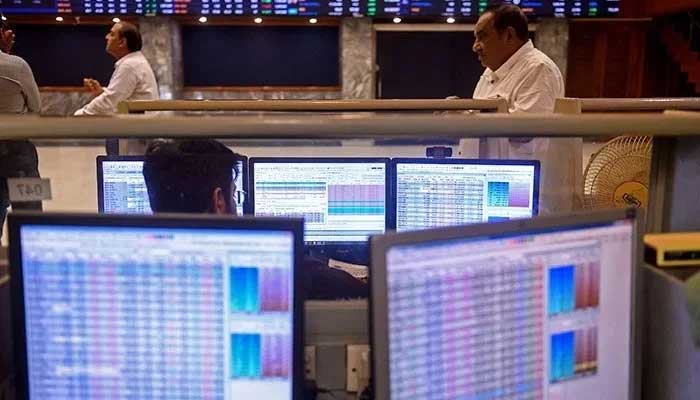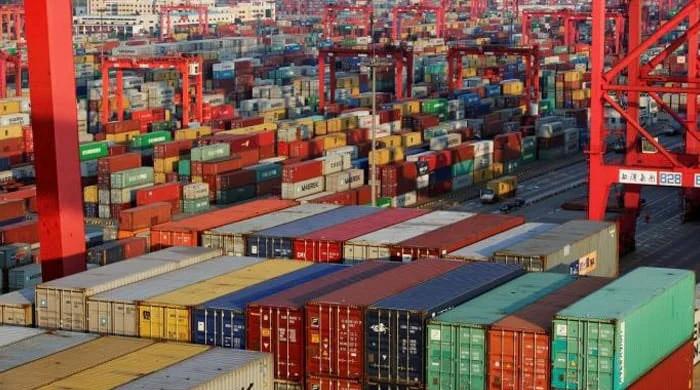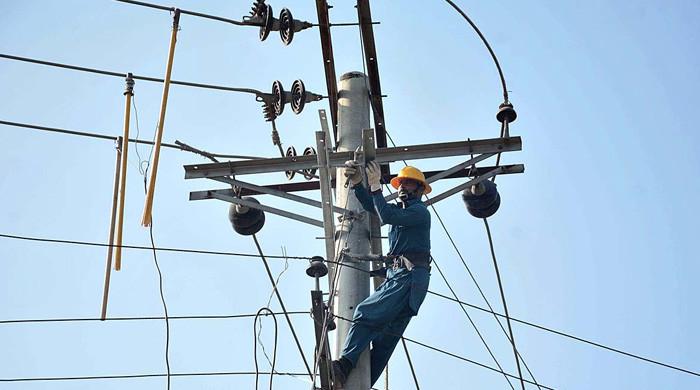PSX bounces back to close below 115,000 points after roller-coaster session
KSE-100 Index surges by 121.30 points, or 0.11%, to close at 114,301.80 points
December 13, 2024

The capital market witnessed a roller-coaster session on Friday, with the KSE-100 Index surging past the historic 115,000-point mark for the first time ever in early trading before retreating as investors capitalised on recent gains through profit-taking.
The Pakistan Stock Exchange’s (PSX) KSE-100 Index surged by 121.30 points, or 0.11%, to close at 114,301.80 points. The benchmark index also surged to an intraday high of 115,172.44, gaining 991.94 points or 0.87%, reflecting strong investor optimism.
However, it later retreated to a low of 112,946.48, shedding 1,234.02 points or -1.08%.
“Market is consolidating at current levels. Some profit-taking is being observed,” noted Samiullah Tariq, Head of Research at Pak-Kuwait Investment Company. His comments highlight a natural pause following days of intense buying activity and record-setting rallies that propelled the market to historic highs.
Friday’s opening hours trading underscores the strength of Pakistan’s macroeconomic fundamentals, with declining inflation, expectations of significant monetary easing, and robust economic activity driving early gains. However, the pullback reflects consolidation, as traders lock in profits after the index’s remarkable ascent.
While the market experiences a cooling-off period, analysts remain optimistic about its long-term trajectory, citing easing inflation, improving liquidity, and continued economic reforms as key drivers for sustained growth in the coming weeks.
Pakistan’s foreign reserves remain stable at $16.6 billion as of December 6, 2024, despite a slight dip of $19 million. Reserves held by the State Bank of Pakistan (SBP) rose by $13 million to $12.051 billion—the highest since March 2022—while commercial bank reserves decreased by $32 million to $4.55 billion.
The country’s Current Account Deficit (CAD) narrowed sharply by 79% year-on-year to $217 million in the first two months of FY2025, with August recording a $29 million surplus. This improvement is supported by robust remittance inflows, stable export earnings, and enhanced domestic production. Exports are projected to reach $33 billion by FY2025, while remittances are expected to rise to $33.5 billion, backed by government incentives and reduced global inflation.
Expectations of significant monetary easing have further boosted market sentiment. On Wednesday, the government reduced Treasury Bill (T-bill) yields by up to 100 basis points. The auction raised Rs1.256 trillion, exceeding the target of Rs1.2 trillion, with the largest yield cut of 100 basis points applied to three-month papers, reducing the rate to 11.99%.
Analysts widely anticipate the SBP will cut its policy rate by up to 200 basis points during the December 16 Monetary Policy Committee (MPC) meeting, supported by declining inflation, which dropped to 4.9% in November, its lowest level since April 2018.
Economic activity continues to accelerate, reflected by a 62% year-on-year surge in passenger car sales in November and a 50% rise during the first five months of FY2025. In addition, the Asian Development Bank (ADB) has approved $530 million in loans to modernize Pakistan’s power distribution infrastructure and expand social protection programs.
The government revised National Savings Schemes (NSS) profit rates earlier this week, with the Savings Account rate cut by 250 basis points to 13.5%. This is expected to redirect funds from savings instruments into equities, providing further support to market activity.
Saudi Arabia’s extension of a $3 billion deposit and trade agreements worth $560 million have strengthened Pakistan’s foreign reserves and reinforced investor confidence. Simultaneously, the banking sector’s Advance-to-Deposit Ratio (ADR) improved to 47.8% as of November 29, 2024, as banks aim to meet the mandatory 50% threshold by December 31 to avoid penalties.
On Thursday, the KSE-100 Index surged by 3,370.29 points, or 3.04%, to close at 114,180.50, marking the third-largest single-day point-wise rally in PSX history. The index reached an intraday high of 114,408.62, reflecting unparalleled investor confidence.
With a stable macroeconomic outlook, declining inflation, and anticipated monetary easing, the market is expected to maintain its upward trajectory.











